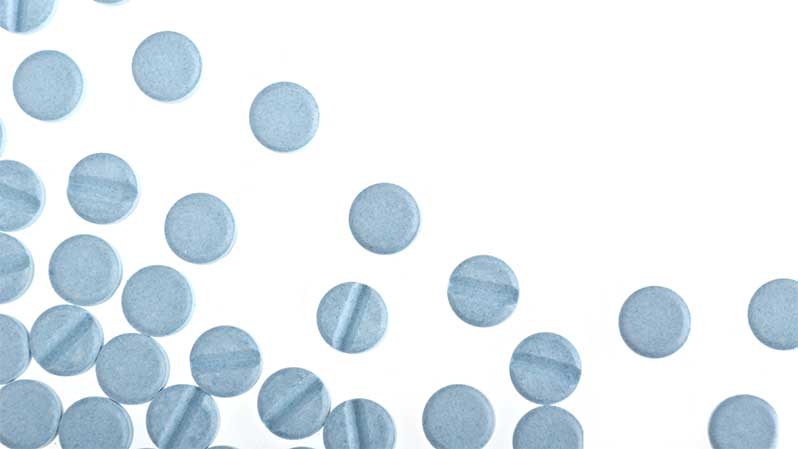Klonopin Overdose | Symptoms, Risk Factors, & Treatment
A Klonopin (clonazepam) overdose can cause a loss of consciousness, confusion, and trouble breathing. Klonopin overdoses can be life-threatening, especially when opioids are involved.

A Klonopin overdose can cause severe drowsiness, clouded judgment, loss of consciousness, and low blood pressure. Overdosing on a combination of Klonopin and opioids can also cause trouble breathing as well as a weak pulse.
Klonopin is a brand name benzodiazepine that can treat anxiety and seizure disorders. Its generic name is clonazepam. Benzodiazepines such as Klonopin, Xanax, and Valium were involved in about 8 percent of all Ohio drug overdose deaths in 2019.
Forms of Klonopin abuse, such as taking higher doses than you were prescribed, taking Klonopin without a prescription, or mixing Klonopin with other prescription drugs, increases your risk of overdose. Taking Klonopin as prescribed by your doctor can reduce your risk of overdose.
Signs & Symptoms Of A Clonazepam Overdose
A clonazepam overdose can happen after taking high doses of clonazepam in one sitting. Clonazepam overdose symptoms may include:
- drowsiness
- sedation
- difficulty staying awake
- impairment
- loss of coordination
- confusion
- unresponsiveness
These symptoms can occur along with more common side effects of Klonopin use, such as dizziness, constipation, and decreased mood.
Klonopin Overdose Risk Factors
Your medical history and family history of drug use can affect your benzodiazepine overdose risk. Your doctor can inform you about your risk of overdose before prescribing Klonopin to you.
Mixing Clonazepam & Opioids
Mixing opioids such as fentanyl, oxycodone, or hydrocodone can greatly increase your risk of drug overdose compared to taking benzodiazepines on their own.
A low dose of Klonopin can become life-threatening when mixed with opioids, due to how the drugs can interact in your body.
In addition to the common effects of Klonopin overdose, a combined opioid and benzodiazepine overdose can cause:
- respiratory depression (trouble breathing)
- hypotension (low blood pressure)
- decreased heart rate
- weak pulse
- clammy skin
In 2019, opioid drugs were involved in about 85 percent of fatal overdoses in Ohio. Opioid drugs can cause overdoses when taken on their own, or cause fatal interactions with benzodiazepines such as clonazepam, alprazolam, or diazepam.
Mixing Alcohol & Klonopin
Drinking alcohol and taking clonazepam can be dangerous to your health. Talking to your doctor about your history of drug use, especially any central nervous system depressants you are taking, can help you avoid dangerous drug interactions and an increased risk of overdose.
Klonopin Addiction & Withdrawal
A Klonopin addiction can develop if you take the drug for long periods of time.
Along with the mental health effects of addiction, you can develop a tolerance to high doses of Klonopin. Tolerance can cause you to feel weaker effects of the drug, but ingesting higher doses of the drug can still be life-threatening.
A physical dependence on clonazepam can also lead to withdrawal symptoms when trying to quit. Withdrawal symptoms can make quitting Klonopin difficult, and can also lead to a relapse as well as an increased risk of overdose.
If you or anyone in your family has a history of drug addiction, you can talk to your Ohio doctor.
Klonopin Overdose Treatment Options
A Klonpin overdose can be life-threatening. Immediate medical attention can be crucial in improving a victim’s survival chances. Klonopin overdose victims may be transported to the emergency department, have their vitals maintained, and receive stomach pumping.
If an overdose happened due to a combination of benzodiazepines and opioids, you can give the victim naloxone.
Naloxone can reverse the effects of opioid overdose and restore breathing before medical professionals arrive. In the long-term, overdosing on prescription drugs can be a sign of a chronic substance use disorder.
Substance Abuse Treatment
Entering an Ohio substance abuse treatment program can reduce your risk of future overdoses.
At Ohio Recovery Center, our inpatient prescription drug addiction treatment options include benzodiazepine detox, cognitive behavioral therapy, and mental health services. To see if our services work for you or a loved one, please contact us today.
- Food and Drug Administration https://www.accessdata.fda.gov/drugsatfda_docs/label/2021/017533s061lbl.pdf
- National Institute on Drug Abuse https://nida.nih.gov/research-topics/opioids/benzodiazepines-opioids
- National Library of Medicine: MedlinePlus https://medlineplus.gov/druginfo/meds/a682279.html
- Ohio Department of Health https://odh.ohio.gov/wps/wcm/connect/gov/a49935b9-1020-4896-a35a-7de671f7298a/Ohio+Monthly+Overdose+Report_2020+Preliminary+Data_July2021.pdf?MOD=AJPERES&CONVERT_TO=url&CACHEID=ROOTWORKSPACE.Z18_M1HGGIK0N0JO00QO9DDDDM3000-a49935b9-1020-4896-a35a-7de671f7298a-nIWeYun

